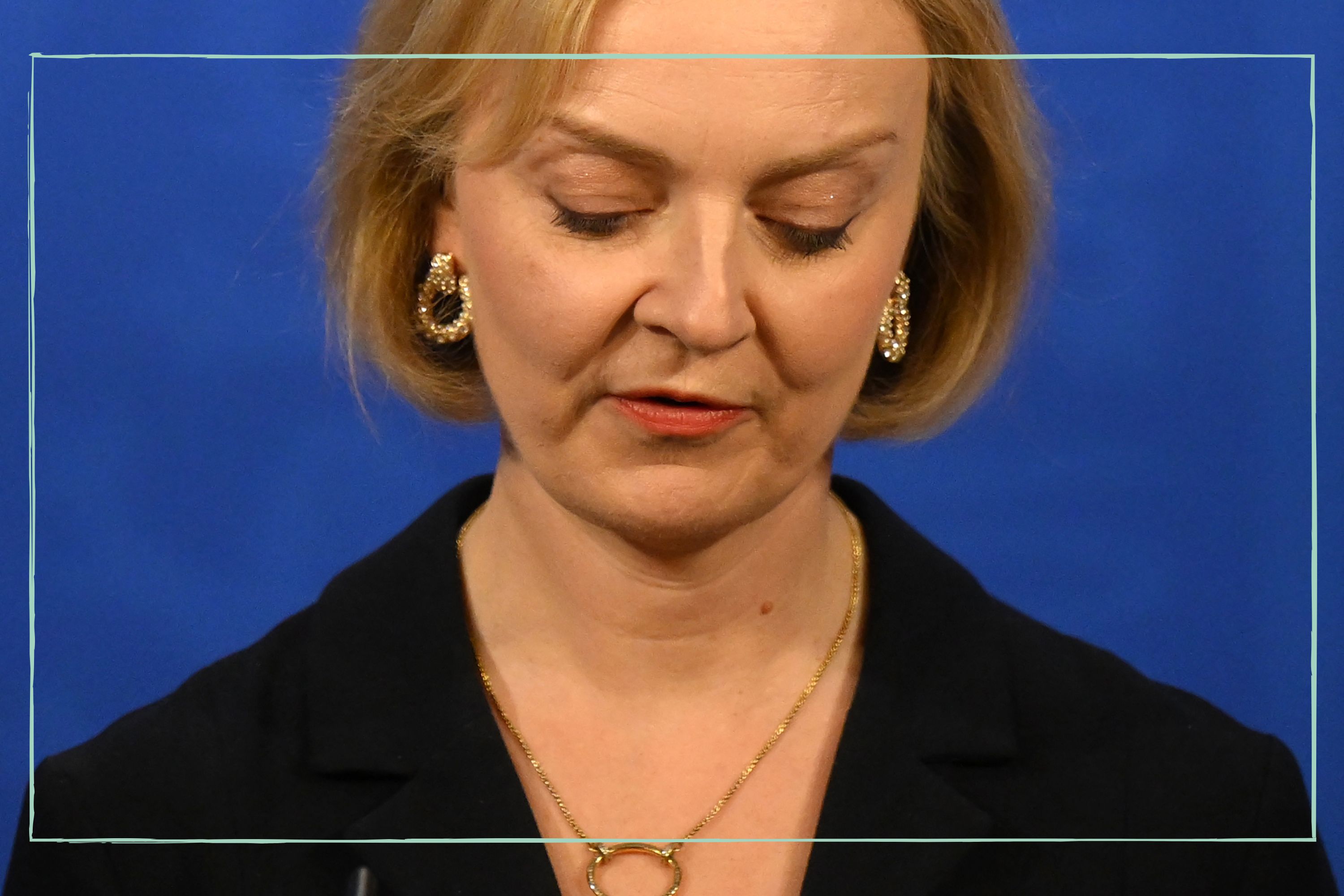Liz Truss officially RESIGNS as Prime Minister
Boris Johnson's replacement has called it quits after 45 days in office


Liz Truss has resigned as Prime Minister of the UK - following mounting pressure from Tory MPs, members of the public, and the media.
The Conservative Party leader faced immense pressure to step down following a tumultuous two weeks in Westminster that saw the sacking of Chancellor Kwasi Kwarteng and the resignation of Home Secretary Suella Braverman.
Giving an official statement outside of 10 Downing Street, Truss announced her resignation, declaring she could no longer deliver the mandate she was elected on by Tory members. She also confirmed that a leadership election would take place in the coming week.
"I recognise though, given the situation I cannot deliver the mandate on which I was elected by the Conservative Party. I have therefore spoken to His Majesty the King to notify him that I am resigning as leader of the Conservative party," she said.
Liz Truss, who was previously Foreign Secretary under Boris Johnson's administration, became Tory leader and subsequent Prime Minister of the UK on 6 September 2022. She was appointed following a Conservative party vote, which saw Truss beat fellow Tory MP Rishi Sunak to the role with 81,326 votes (57.4%).
During her time as UK Prime Minister, Liz Truss announced a new £2,500 cap on energy prices - amongst the ongoing cost of living crisis. Originally fixed for two years (now in place to April 2023) the initiative was introduced whilst the government worked on resolving supply issues and bringing about more affordable energy prices.
Most recently, the Prime Minister faced public criticism for the 2022 mini budget delivered on September 23 by the then-Chancellor of the Exchequer Kwasi Kwarteng. Proposals included cutting both income tax and stamp duty, in addition to reversing the National Insurance hike. A YouGov poll later confirmed that the mini budget was the worst received of any financial statement since the Conservatives took power in 2010. Market volatility arose in wake of the new budget, leading the Bank of England to intervene.
GoodtoKnow Newsletter
Parenting advice, hot topics, best buys and family finance tips delivered straight to your inbox.
In response to the backlash, Liz Truss sacked Kwasi Kwarteng as chancellor, with Jeremy Hunt later stepping up into the role. The new chancellor went on to U-turn a number of mini budget decisions, which called into question the stability of Truss's leadership.
Truss's authority was again undermined as events unplayed yesterday. Home Secretary Suella Braverman was forced to step down for having been found in serious breach of the ministerial code, for an email sent from her personal account to a fellow MP of an official document. In her resignation letter to the Prime Minister, Braverman shared her "concerns about the direction of this government".
"Not only have we broken key pledges that were promised to our voters, but I have had serious concerns about this government’s commitment to honouring manifesto commitments," the letter continued.
Braverman's departure also coincided with a controversial Commons vote on fracking - where allegations were made of Tory MPs being "bullied" into backing the Prime Minister's stance on the issue.
In the wake of Truss's resignation, chancellor Jeremy Hunt has since confirmed that he will not stand to be the next Conservative leader and UK prime minister.
Related politics features:

Emily Stedman is the former Features Editor for GoodTo covering all things TV, entertainment, royal, lifestyle, health and wellbeing. Boasting an encyclopaedic knowledge on all things TV, celebrity and royals, career highlights include working at HELLO! Magazine and as a royal researcher to Diana biographer Andrew Morton on his book Meghan: A Hollywood Princess. In her spare time, Emily can be found eating her way around London, swimming at her local Lido or curled up on the sofa binging the next best Netflix show.